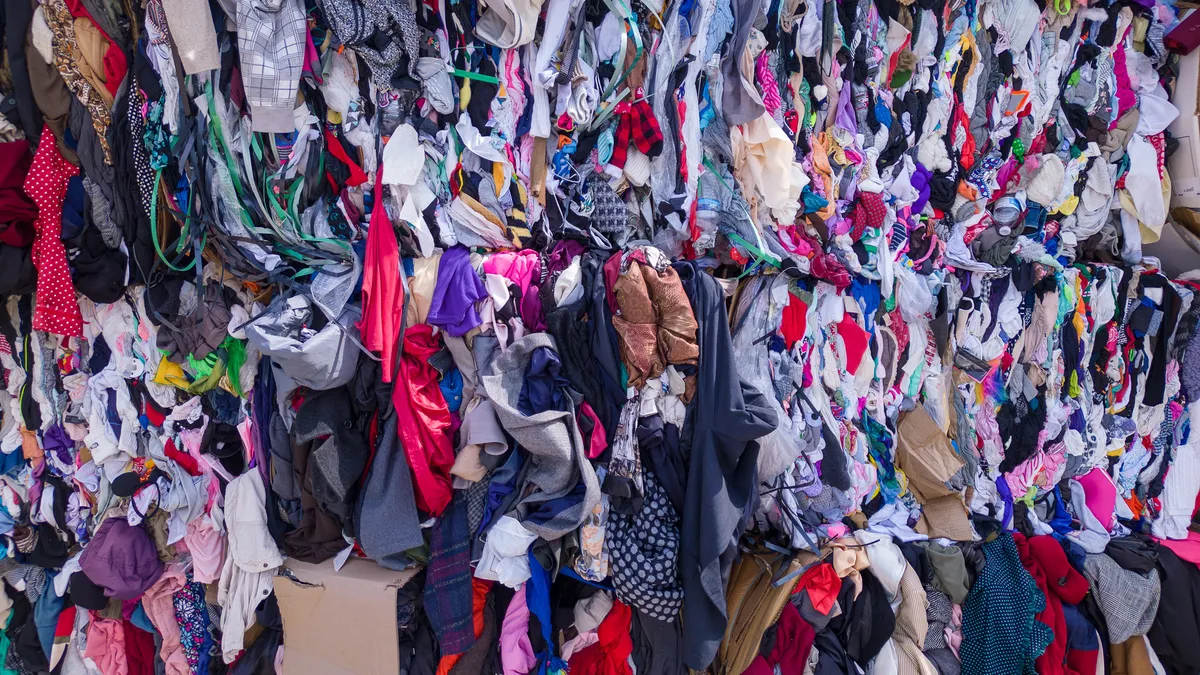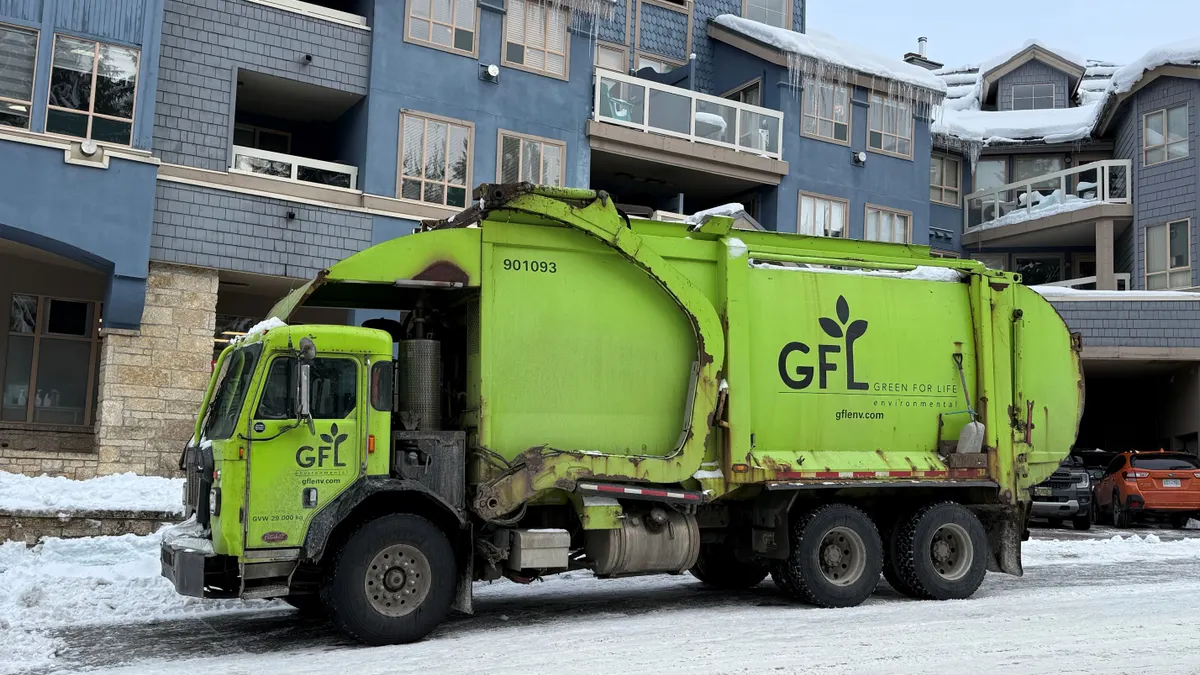Textile recycling projects are moving forward this spring and summer as municipalities, states and business advocates look for ways to divert apparel and other items from disposal. Here’s a look at recent textile recycling regulations and innovations in California, Ohio, New Jersey and elsewhere in the U.S:
Textile EPR implementation continues in California
The implementation process for the first extended producer responsibility for textiles program in the country is beginning to pick up momentum.
Last September, California enacted its EPR for textiles program, which recycling and waste groups say will create significant recycling, repair and reuse options for textiles by 2030.
CalRecycle, along with EPR supporters, are beginning to hold information sessions and outreach programs to help raise awareness of how the program will affect stakeholders in the state, said Joanne Brasch, director of advocacy and outreach at the California Product Stewardship Council, the EPR law’s main sponsor.
CalRecycle will host its first informational textile stewardship workshop on July 17. Brasch said it’s an important opportunity for stakeholders, including possible producer responsibility organization candidates, to get up to speed on the EPR law and ask questions.
Many more implementation details will be worked out in coming months, and “the big question is who will be the PRO,” Brasch said, adding that several entities are planning to apply.
CalRecycle must approve a PRO by March 1, 2026, according to the law, then adopt regulations to implement the program no earlier than July 1, 2028. The PRO will need to submit a plan for collection, repair and recycling of such textiles by July 1, 2030.
CalRecycle has also hired most of its needed textile program staff members, she said, including some internal hires that “have a lot of background knowledge and experience working with EPR programs.”
CPSC has also been on a national speaking circuit to talk about California’s law and hosts quarterly meetings to help stakeholders prepare for the upcoming informal and formal regulatory processes, Brasch said. “A lot of our education has been focused on ensuring producers of covered products are aware of their responsibilities and opportunities,” she said. That includes small independent thrift stores and secondhand businesses, along with applicable healthcare and hospitality industries.
As part of the work to prepare stakeholders to get involved in the textile EPR program and get a better understanding of where textiles are currently ending up, CPSC recently conducted textile fiber audits for GreenWaste, Athens Services and the Salvation Army, she said.
Central Ohio waste authority pilot and study aims to craft long-term textile recycling program
The Solid Waste Authority of Central Ohio is participating in a textile waste study and pilot program partnership with Goodwill, Circular Thrift and Leigh Fibers. The project is meant to get a better picture of how textile waste affects the region and test new methods for collecting and recycling the materials into new products.
SWACO will coordinate and fund the project, which establishes numerous textile drop-off sites for residents through August. After the material is collected, sorted and baled, it will be sent to textile recycling company Leigh Fibers in South Carolina. The items will be recycled into products such as vehicle insulation, furniture padding, packaging and thermal insulation in construction materials, SWACO said in a statement.
“Textile waste is complex yet a rapidly emerging trend,” said Joe Lombardi, SWACO’s executive director, in a statement. “Locally, about 4% of the waste stream is comprised of these materials, putting clothing in the Top 10 most thrown-away items.”
SWACO and its partners will use data collected from the pilot to determine how to create a permanent textile recycling program for the central Ohio region. SWACO says the project will also help inform its wider sustainability strategies.
Union County, New Jersey, expands textile recycling program
Union County, New Jersey, is expanding its textile recycling program to offer services at an additonal drop-off location.
The county first launched textile recycling services in February as a way to divert such waste from disposal, and it has since diverted over 23,000 pounds of textiles from three drop-off sites around the county, officials said. It added another location in June.
The county sends its textiles to Helpsy, a clothing and textile recycling company that inspects and sorts clothing, shoes and household linens and resells reusable items to secondhand stores and online resellers. Helpsy says it saved municipalities around the country over $1.6 million in tipping fees in 2024.
Union County Commissioner Chair Lourdes Leon said in a statement that the program is meant to make it easier and more convenient to recycle materials that many residents might otherwise throw in the trash. The partnership with Helpsy fits with the county’s other recycling and waste reduction programs and the county’s broader sustainability goals, she said.
Other textile recycling news:
- Selenis North America says it still plans to build a new textile-to-textile recycling plant in North Carolina, despite the closure of the Alpek PET resin factory at the same location. Selenis’ planned textile recycling plant is a partnership with Syre, a Swedish recycling-centered textiles firm. Alpek announced May 30 that it would close its PET flake and resin plant as part of a “long-term strategy to optimize its global footprint.”
- Ridwell, a residential subscription service that picks up hard-to-recycle items including textiles, is now asking its customers to self-sort the items they donate into two categories: re-wearable items and recyclable items. The change comes as the company adds more customers to its program and works with downstream partners that are having trouble processing such textiles due to larger volumes, Resource Recycling reported.
- Carpet recycling bill AB 80 passed the California House on June 2 and is now awaiting consideration in the Senate. The bill, sponsored by the California Product Stewardship Council, would make updates to the state’s carpet stewardship program bill is meant to improve program accountability and add more members to the program’s governing board.






















